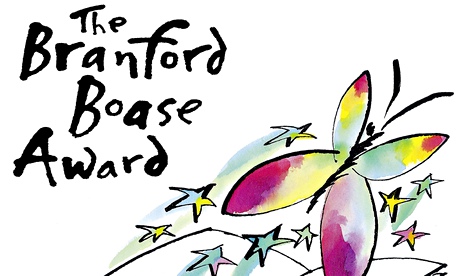
Seven authors have been shortlisted for the 2014 Branford Boase award, which is given annually to the author of the best debut novel for children. Uniquely, the Branford Boase award also honours the editor of the winning title and highlights the importance of the editor in nurturing new talent.
We asked the authors for the best piece of advice their editor had given them, and here are their responses...
Natasha Carthew, author of Winter Damage, edited by Rebecca McNally (Bloomsbury):
The first word of advice from my editor was to remember to use plot, momentum and pace to carry the story forward; as a poet I'm happy to get lost in the detail of description and she reminded me to not forget the bigger picture in order to keep the sense of motion, tension and engagement. Three books later I still adhere to this good advice.
Top tip? Curb the cussing!
CJ Flood, author of Infinite Sky, edited by Venetia Gosling (Simon and Schuster):
The best writing tip I ever got was during my time at UEA, and it was that the specific becomes poetic. It taught me not to reach for poetry, but to find it more authentically in the details of the setting and characters.
My editor for Infinite Sky, Venetia, pushed me to know my characters, and how they feel. Iris's feelings about her absent mother are central to the novel, and complex, and for a long time I didn't understand these myself. Venetia wouldn't stand for this vagueness.
Rob Lloyd Jones, author of Wild Boy, edited by Mara Bergman (Walker):
Editors see the little and the large. One huge thing Mara taught me was to keep it simple. Often I over-complicate things with detail, clutter, lose focus on the purpose of the scene. Action, description, detail – that's all just stuff. What matters are the characters in the middle of it, what they are trying to do.
As for the little… Too many sentences begin with a character's name, or the ridiculous number of descriptions of light. Notes like that embarrass me, which is great. With a good editor, you're always embarrassed. You blush. You start typing again. You get better.
Julie Mayhew author of Red Ink, edited by Emily Thomas (Hot Key):
The best two pieces of advice my editor Emily Thomas gave me are…
1) To not censor myself. The emotional and social landscape of Red Ink might have made other editors nervous – should Melon say that? Should Melon do that? But Emily never once said "we must tone this down" or "better get rid of that". She has an incredible respect for teen readers. If they have questions about the darker aspects of life, they should be allowed to ask them and explore them through the safety of fiction. Similarly as a writer, fiction is a safe place for me to express the things it's hard to express in real life. So who wants an editor who says, "oh no, you mustn't write that"? 2) To read The Country Girls. How did it take me this long to discover that book?! It's what the teenage me was desperate for.
Ross Montgomery, author of Alex the Dog and the Unopenable Door, edited by Rebecca Lee and Susila Baybars (Faber):
When I first handed Alex in, it was a bit of a sprawling mess. Both Susila and Rebecca helped me understand that if you want detail in your writing, you have to know when to use it – at all other times, clarity is key.
Fletcher Moss, author of The Poison Boy, edited by Imogen Cooper and Barry Cunningham (Chicken House):
My editor is hyper-intelligent, exacting, demanding, but really lovely with it. Her devastating assessments of my school-boy errors usually come in the form of a politely phrased question. (Recent case in point - Her: Just wondering. Why have you got two separate antagonists? Me: Oh damn! I have, haven't I?) Her advice has been clear, concise and utterly invaluable. Looking back over my notes from those late night phone calls, there are gems aplenty. There's "Raise the stakes! The cause needs to be bigger, more immediate." Or there's "There are foreground characters and background characters, and a few in the middle. Put your cast into one of these three lists. Justify their inclusion." Or "Always think about motivation. Why do they do the things they do, in the order they do them?" Or with plotting denouments "Think big picture. What lessons are learnt? How is the world changed, not just the people in it?" All were close to impossible to answer. "Think it over," she'd say breezily. "I'll call you in a week."
Holly Smale, author of Geek Girl, edited by Lizzie Clifford (HarperCollins):
1. Decide what story it is you want to tell, and then have as much fun telling it as possible.
2. More kissing, please.
Announcement
The winner of the Branford Boase 2014 award will be revealed later this evening. Watch this site at 7:30pm!

